The gas lobby is weakening Southern California’s boldest clean-air plan in decades
A coalition that includes SoCalGas has launched a fierce campaign against a transition away from gas-fired furnaces and water heaters
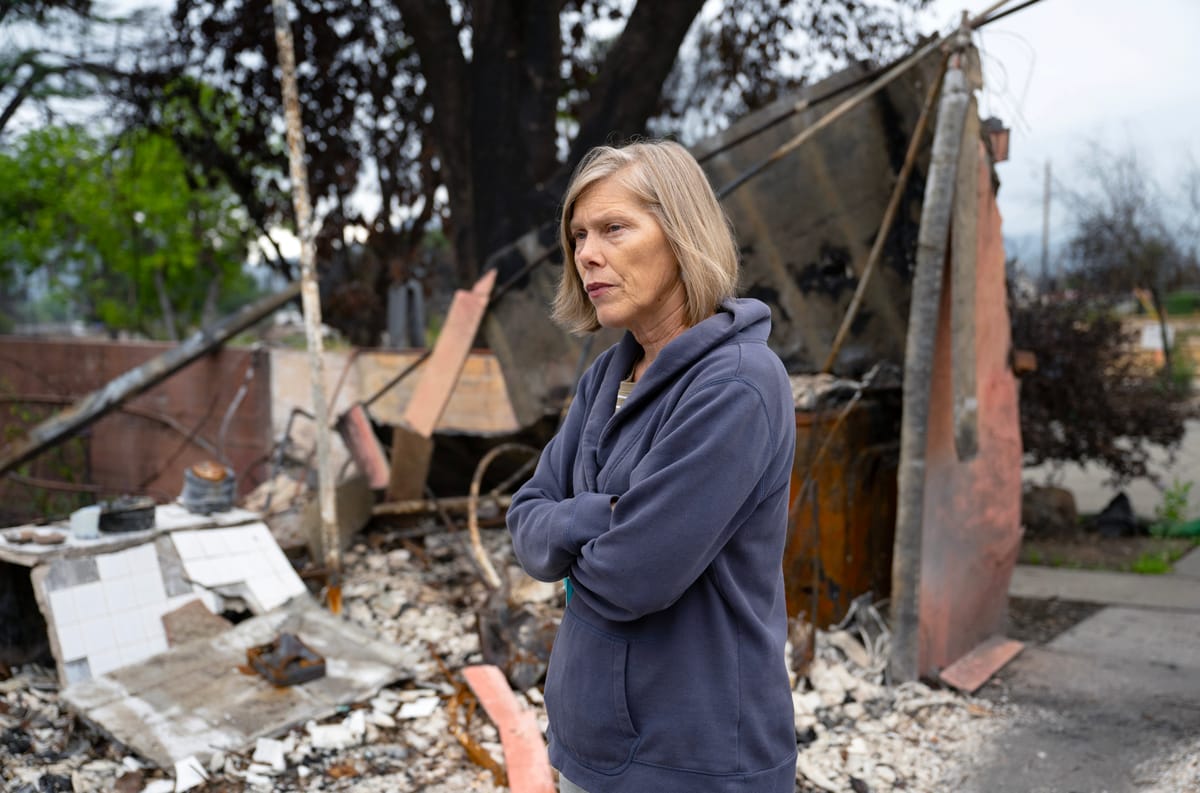
Published by The Guardian
On a windy night in early January, second-grade teacher Barbara Ishida spotted the Eaton Fire glowing in the hills behind her home in Altadena, California. Her mind turned to the deadly wildfires in Lahaina and Paradise and she thought, “Let’s get out — now.”
Ishida and her husband evacuated safely, but the flames destroyed their home. An attribution study found that climate change, which is primarily caused by burning fossil fuels, made the January fires 35% more likely.
Selling their burned lot would not earn enough money to afford another home elsewhere, Ishida said. She thought the least they could do is rebuild in a way that wouldn’t compound the climate crisis that raised the fire risk.
“Building back is our only option at this point,” Ishida said, “so we’re going to build back super environmentally-friendly.”
Her vision is to build a fire-resistant home with no gas appliances. That approach is backed by a University of California Berkeley study released in April that concluded all-electric construction is the fastest, most cost-effective and most climate-friendly strategy to rebuild after the fires.
But the gas industry is pushing back against this idea. Proposed rules that would have encouraged Ishida and other homeowners to buy furnaces and heaters that emit no nitrogen oxides (NOx) — a key pollutant from gas appliances — have been weakened and delayed by a coalition of groups that includes SoCalGas, the country’s largest gas utility and a monopoly gas company in Southern California. After a fierce opposition campaign, the rules are going to a vote on Friday, June 6.
Rules would tighten heater standards
The rules are proposed by the South Coast Air Quality Management District (SCAQMD), the agency responsible for improving air quality in Los Angeles and nearby communities, one of the most polluted air basins in the United States.
If passed, the rules are designed to create cleaner air and reduce planet-heating emissions by setting future targets for sales of new zero-emission space and water heaters. The rules would apply to manufacturers, distributors, sellers and installers. They are expected to prevent 2,490 premature deaths and avoid 10,200 asthma cases.
“Consumers will continue to have a choice of purchasing either a gas or electric space/water heaters when replacing their existing units,” explained Nahal Mogharabi, a spokesperson for the air-quality district. “Importantly, consumers can continue to operate their existing units until the consumer chooses to replace it or the unit breaks.”
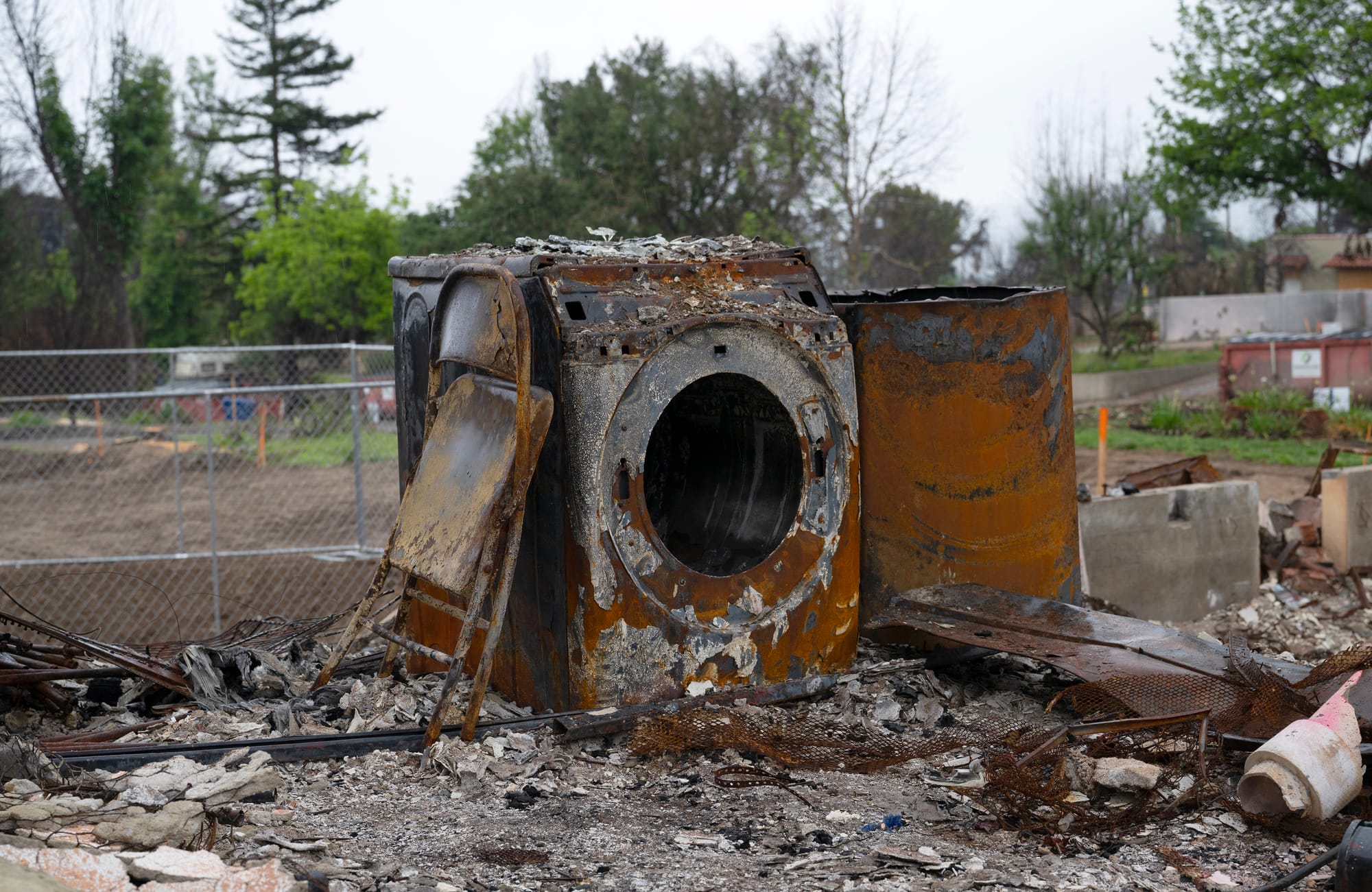
SoCalGas defended its role in the opposition campaign. “SoCalGas’ stakeholder engagement and outreach efforts on this topic are a regular part of any rulemaking process where we share information that could affect Southern California customers,” SoCalGas spokesperson Erica Berardi wrote in an email.
BizFed, a business group that was also part of the opposition campaign, advocated for a delay in the rule-making process “to allow for more transparency and sufficient public outreach to make Southern Californians aware of the significant costs associated with these changes,” Elizabeth Daubel, communications director for BizFed, wrote in an email.
At the same time that the opposition campaign ramped up, groups allied with the gas industry filed a lawsuit against the SCAQMD, aiming to undermine its authority to impose such regulations.
The opposition is far from unique; a February report by London-based think tank InfluenceMap found that fossil fuel companies in the United States, European Union and Australia are waging parallel campaigns against laws that restrict use of gas in buildings — pushback that has largely succeeded in preventing and weakening these laws.
Ishida signed a letter supporting the proposed SCAQMD rules because she believes they would encourage Altadena to build back in a sustainable way. When she heard about the organized opposition to the rules, Ishida felt angry.
“They're just putting profits over people. They're not thinking long term. They're thinking short term. And they're not thinking very well for the next generation,” she said. “It's sad and it's selfish and it's not right.”
Opposition campaign leads to weakened rules
Although progressive states like California are leading the transition away from fossil fuels, gas appliances remain ubiquitous in California homes and across the western United States.
The SCAQMD is responsible for air quality in much of Los Angeles County, Orange County and the western portions of San Bernardino and Riverside counties — a highly populated corner of the state. Buildings account for one-quarter of greenhouse gas emissions in California but are subject to local control, meaning that local regulators like the SCAQMD have a big role to play in lowering emissions.
In 2023, recognizing the air pollution caused by gas appliances, the agency proposed amendments to two rules to encourage alternatives. Changes to Rules 1111 and 1121 would establish a zero-emission NOx standard for furnaces and water heaters.
As originally written, the new rules would have impacted more than 10 million gas-fired residential and commercial furnaces and residential water heaters. The rules would not affect gas stoves, a flashpoint in similar regulatory efforts.
The way they were written in October 2024, the proposed rules would have required that all furnaces and water heaters installed become zero-emission by 2026 for new residential and commercial buildings. Existing buildings and mobile homes had a few more years to comply.
But in recent months, SCAQMD staff have softened the proposed rules. The current version now requires manufacturers to meet zero-emission sales targets for residential buildings, starting at 30% in 2027-28 and rising to 90% by 2036. The rule no longer requires that all new furnaces and water heaters be zero-emission by a certain date.
The original rules would have reduced NOx emissions by 10 tons per day, which would have been the largest emission reducing rule package adopted in over three decades by the SCAQMD. The revised rules would achieve a reduction of 6 tons per day of NOx emissions.
Kim Orbe, senior conservation program manager at Sierra Club, said pushing back the compliance date would allow manufacturers to continue building gas-powered equipment for years to come. She believes the weakened rules are not sending a strong enough signal to manufacturers to develop more heat pumps and other clean alternatives.
“(Lobbyists) have slowed down that transition where it was supposed to be a zero emission rule,” Orbe said. “So now it's not a zero emission rule. Now it's been tremendously weakened.”
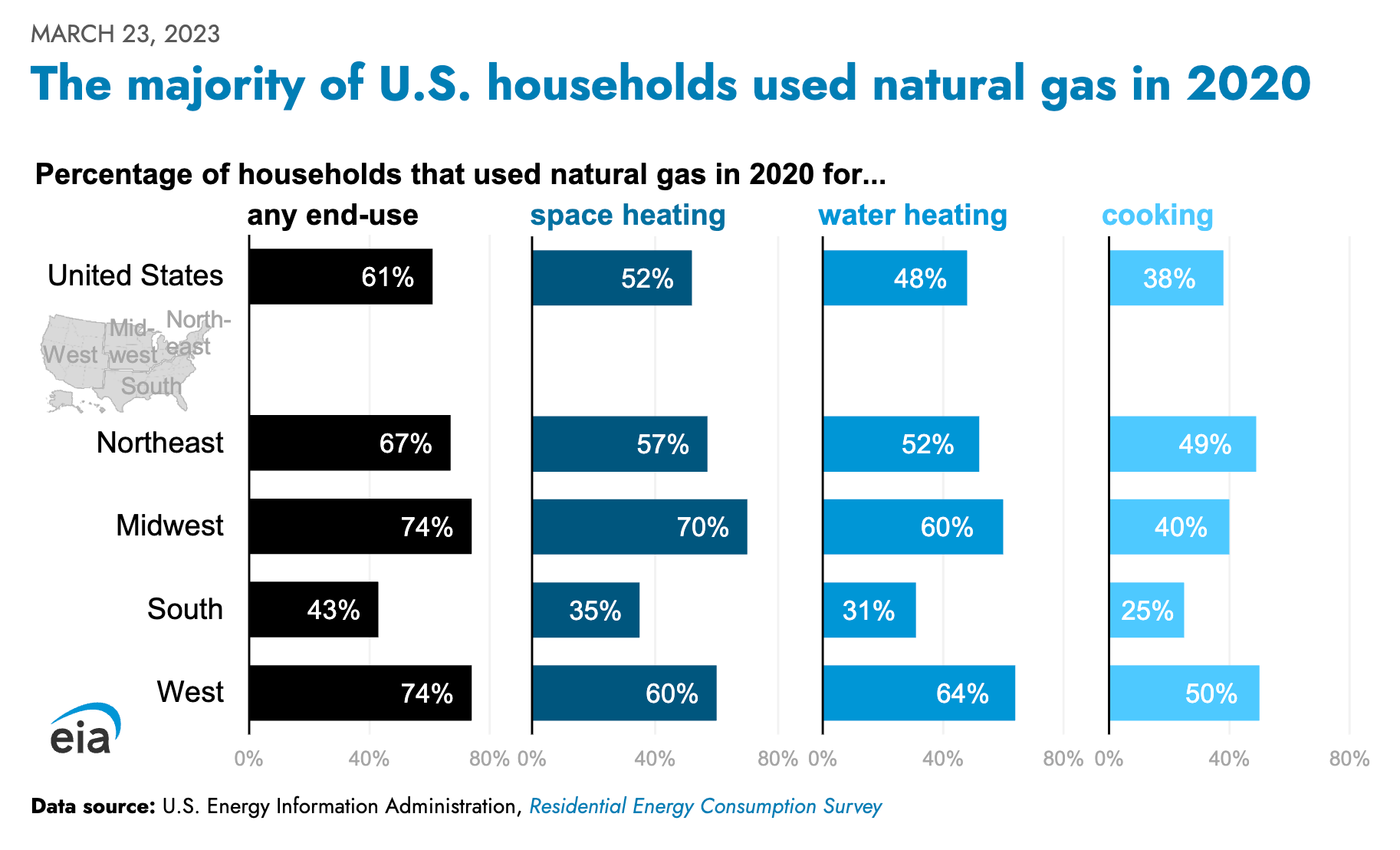
SoCalGas encouraged officials to oppose rules
For the past two years, the draft rules have wound their way through a process to gather public feedback, including from impacted businesses like SoCalGas. The company sells methane, also known as natural gas, and has a history of lobbying hard against regulations that hurt its bottom line.
In late 2024, an opposition campaign sprung up to push back against the rule changes. SCAQMD’s board had originally scheduled a hearing on the rules for Dec. 6, but opposition groups raised concerns about public outreach and awareness, so staff sought additional input. The final board hearing and vote on the rules was pushed back by six months, to June 6, 2025.
SoCalGas and groups aligned with the company helped delay the rulemaking process by encouraging public officials to oppose the rules, according to records obtained by the Energy and Policy Institute and shared with Floodlight.
Ahead of a major SCAQMD meeting on Dec. 20, SoCalGas employees sent “urgent” requests to public officials, including mayors of cities in the South Coast area, asking them to send letters, testify and pass resolutions opposing the rules. BizFed joined in the opposition.
Their emails claimed — misleadingly — that the rules would prohibit the sale and installation of all gas furnaces and water heaters.
On Dec. 9, a SoCalGas employee emailed a member of the Ontario City Council to encourage her to testify at the meeting, sending along SoCalGas talking points. The council member attended the meeting and testified against the rules.
On Dec. 16, an official from the city of Lake Elsinore submitted a letter to the SCAQMD opposing the rules. The official then forwarded the letter to a SoCalGas employee who replied, “Wow! Thank you so much!!!!!!!!!”
A day later, another SoCalGas employee emailed an official from the city of Norco, asking her to testify or submit a letter opposing the rules. He also sent her a sample letter. City officials replied with the opposition letter he had asked for.
Some of the letters that SCAQMD received from public officials were drafted by a consultant working for BizFed. Several city governments copied the consultant’s draft letter onto their letterhead. Almost word-for-word letters were sent to the SCAQMD by the Orange County Council of Governments, the city of Lake Forest and the city of Loma Linda.
The consultant also sent elected officials a draft resolution that city councils could pass asking the SCAQMD to “delay or cease” consideration of the rules. Loma Linda officials added the resolution to the City Council meeting agenda. At its Jan. 14 meeting, the city council passed the resolution opposing the rules.
The response to the rules was overwhelming, generating over 12,500 comments. But staff reported that many letters opposing the rules contained faulty information, including that the rules would mandate homeowners switch to all-electric appliances. In response, staff released a “myths versus facts” explainer on what the rules would do.
The governing board delayed the vote and modified the rules to give more time for public outreach, and “in response to concerns raised by stakeholders about cost, technology availability and consumer choice,” agency spokesperson Mogharabi wrote in an email.
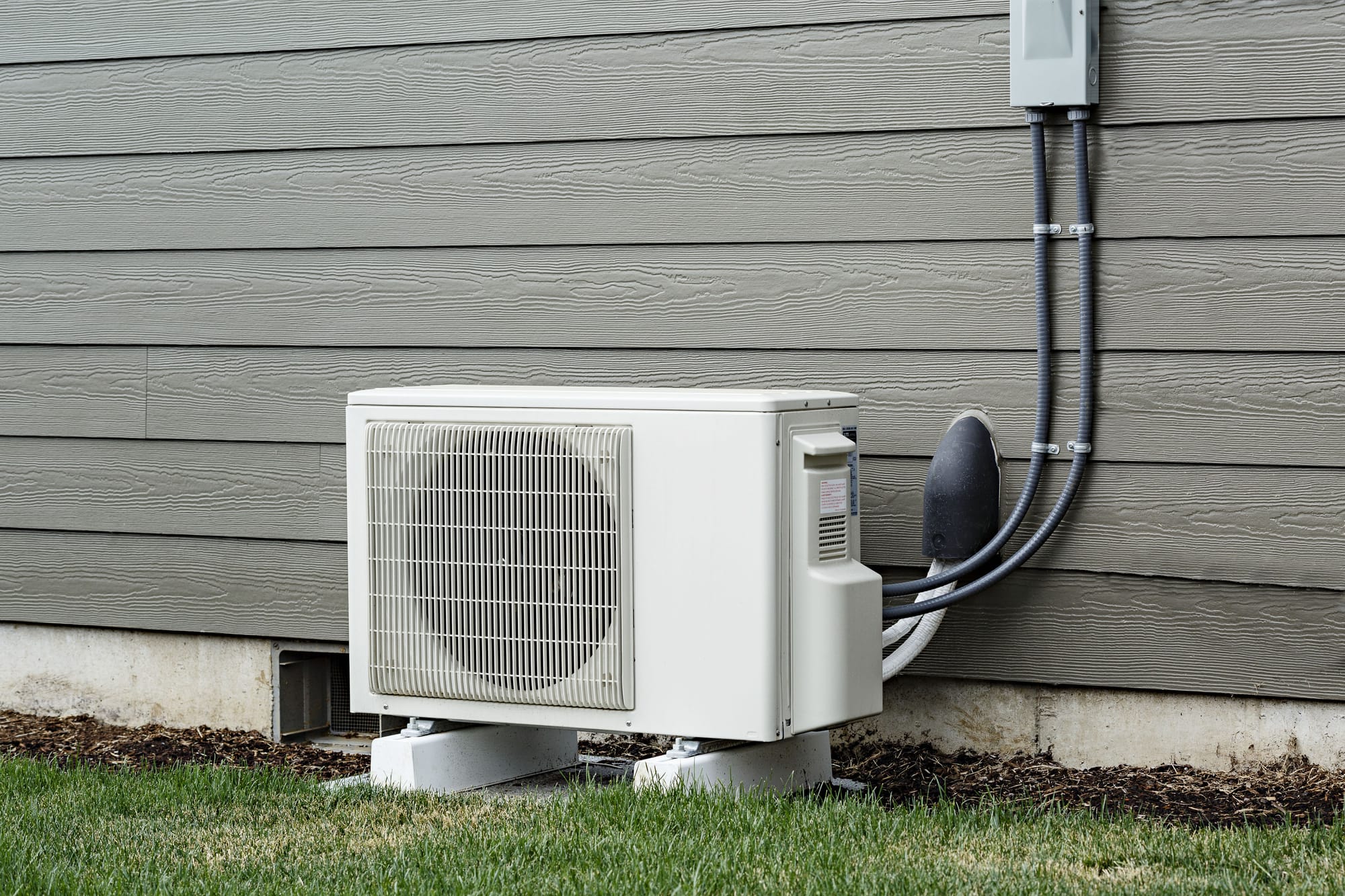
“Even though the rule has been modified, as is typical during the rulemaking process, the current NOx reductions are significant,” she added.
She noted that this summer, the agency is launching a Go Zero rebate program that will provide more than $21 million to help residents and small businesses install zero-emission heating appliances.
Mogharabi said SCAQMD staff were not aware that BizFed, SoCalGas and others had emailed public officials to encourage them to submit letters, testify and pass resolutions opposing the rules.
Lawsuit challenges the regulator
On Jan. 10, as unprecedented megafires burned out of control in Los Angeles — destroying thousands of homes and killing 30 people — SCAQMD officials held a public meeting to consider the proposed rules 1111 and 1121.
The tone of the meeting was somber. Officials began by acknowledging the wildfires and smoke cloaking the city, offering condolences to a board member who lost his home to the flames. Minutes later, lobbyists including a representative of SoCalGas asked for the rules to be delayed or retracted, citing an active lawsuit that challenged the SCAQMD’s authority to make such rules.
Whitney Squire, CEO of the Plumbing, Heating, Cooling Contractors of California, said, “We strongly urge the board to retract these additional proposed rules or at least postpone their implementation until the litigation reaches its conclusion.”
She added, “These rules, which effectively ban gas appliances, would pose significant financial burdens and disrupt the lives of countless individuals.”
SoCalGas lobbyist Jessi Davis also spoke at the meeting. “We think it would be prudent for the board to postpone this rulemaking until these issues are resolved by the courts,” she said.
In December, as staff were receiving pushback to rules 1111 and 1121, a coalition of groups filed a lawsuit against the SCAQMD, seeking to overturn a related rule that phases out large gas-fired furnaces and water heaters in commercial and industrial facilities.
The plaintiffs include the National Association of Home Builders, the Plumbing, Heating, Cooling Contractors of California and the California Restaurant Association. Other plaintiffs include Rinnai America Corp., which manufactures gas heaters, and unions representing pipefitters. SoCalGas is not a plaintiff in the lawsuit.
The lawsuit aims to block enforcement of Rule 1146.2, which imposed a zero-emissions standard on large industrial boilers and water heaters. The lawsuit argues the rule is invalid under the federal Energy Policy and Conservation Act (EPCA). That rule is different from the proposed rules, which are specific to smaller residential and commercial furnaces and water heaters.
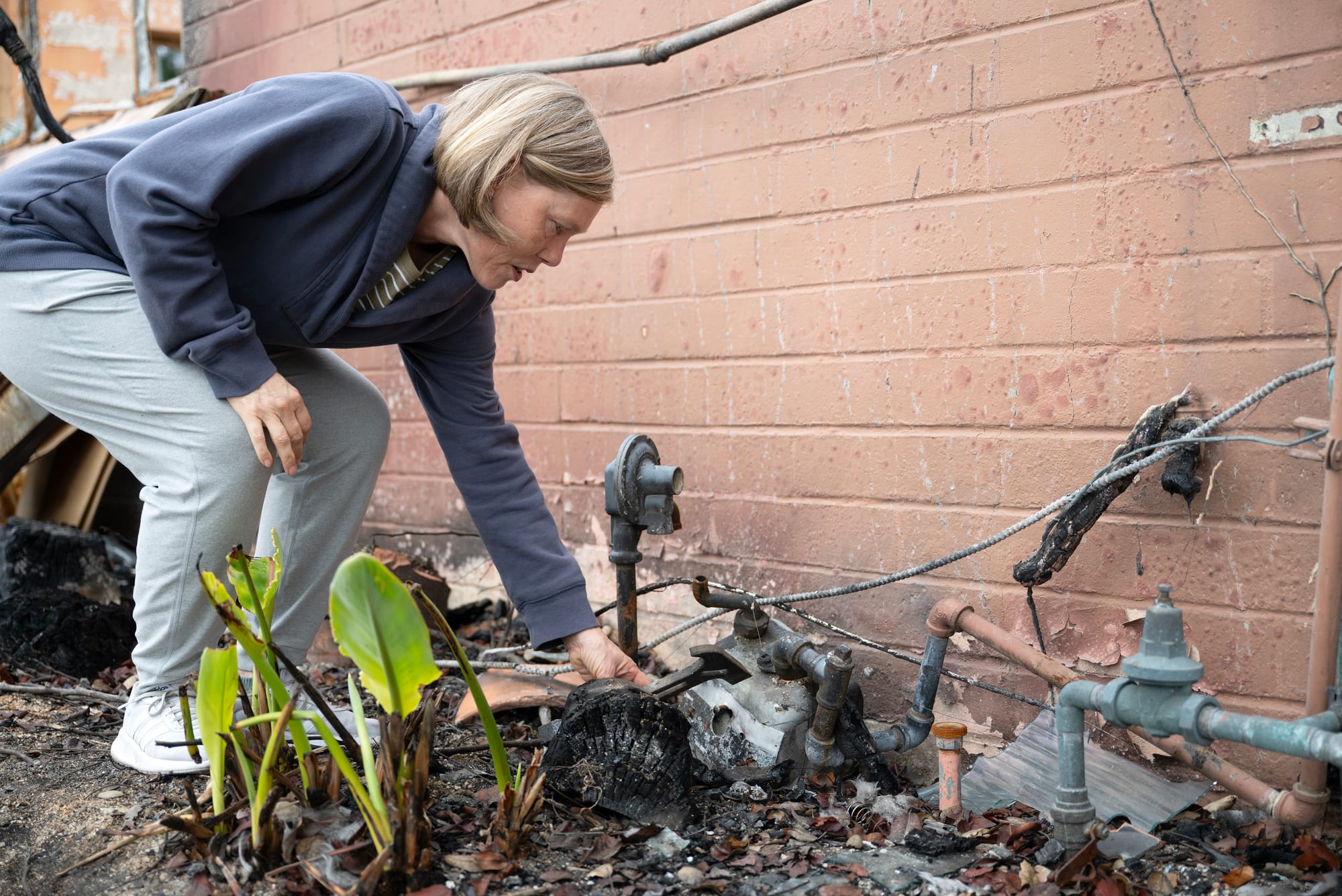
The lawsuit cites a previous court ruling that favored the gas industry. In 2019, the California Restaurant Association sued the city of Berkeley, arguing that its ban on gas in new buildings violated EPCA. The case was appealed up to the 9th U.S. Circuit Court of Appeals, which sided with the plaintiffs and barred Berkeley from imposing its gas ban.
In that case, the Reichman Jorgensen law firm represented the California Restaurant Association. As the firm fought the case, SoCalGas paid Reichman Jorgensen more than $4 million between 2020 and 2022, The Sacramento Bee reported. In the new lawsuit filed in December, one of the firms representing industry plaintiffs is Reichman Jorgensen. SoCalGas denied funding either the Berkeley lawsuit or the lawsuit related to Rule 1146.2.
The new lawsuit poses a threat to SCAQMD’s authority, according to Adrian Martinez, an attorney at Earthjustice, an environmental nonprofit that is intervening in the case. He said the plaintiffs are attempting to apply the Berkeley decision to the South Coast air-quality agency.
“The legal theories they're trying to push would undermine the ability of the (agency) to protect its residents,” he said. “They're attempting to strip local entities like SCAQMD of the ability to clean up pollution.”
Martinez, who attended the meeting, said the gas industry has the right to advocate for its position, but doing so during a climate emergency was “morally reprehensible.” SCAQMD declined to comment on the pending litigation.
As she considered how to rebuild in an environmentally-friendly way, Ishida received an email from SoCalGas offering to reconnect her gas service. Ishida has no plans to do that. “We need to make it more available and easy for people to build back all-electric,” she said.
With another wildfire season on the horizon, she is thinking about the future of Los Angeles. “We’re not going to be the only community that burns,” Ishida said. “We’re not going to be the last if we continue down this stretch.”
Floodlight is a nonprofit newsroom that investigates the powerful interests stalling climate action.
